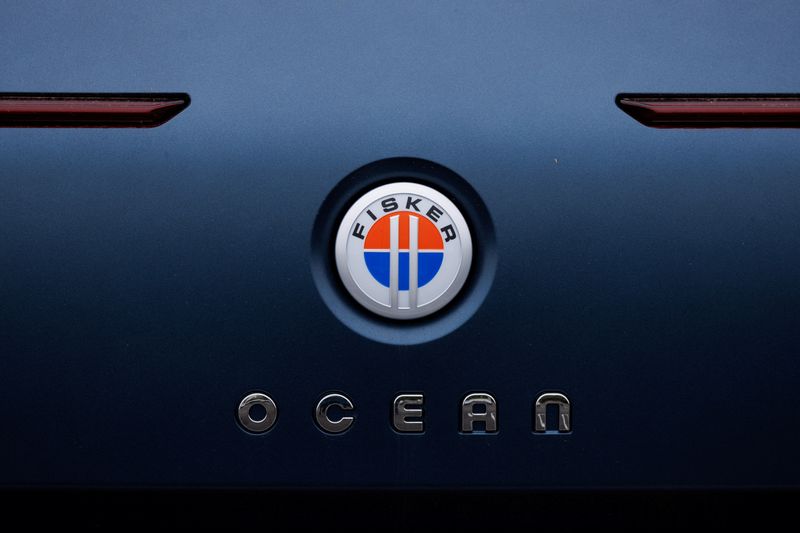By Akash Sriram
(Reuters) -Fisker filed for bankruptcy protection late on Monday, as the U.S. electric-vehicle maker looks to salvage its operations by selling assets and restructuring its debt after burning through cash in an attempt to ramp up production of its Ocean SUVs.
The hyper-competitive EV market has seen several companies, including Proterra, Lordstown and Electric Last Mile Solutions, file for bankruptcy in the past two years as they grappled with weakening demand, fundraising hurdles and operational challenges from global supply chain issues.
The company, founded by automotive designer Henrik Fisker, flagged doubts about its ability to remain in business in February and later failed to secure an investment from a big automaker, forcing it to rein in operations.
The collapse of its talks with the automaker - which Reuters had reported to be Nissan - meant that it was denied $350 million in funding from an unnamed investor that was contingent on the automaker's investment and forced Fisker to explore options.
"Like other companies in the electric vehicle industry, we have faced various market and macroeconomic headwinds that have impacted our ability to operate efficiently," Fisker said.
In the Chapter 11 bankruptcy filing in Delaware, its operating unit, Fisker Group Inc, estimated assets of $500 million to $1 billion and liabilities of $100 million to $500 million.
Its 20 largest creditors include Adobe (NASDAQ:ADBE), Alphabet (NASDAQ:GOOGL)'s Google and SAP, the filing showed.
UNFINISHED BUSINESS
Fisker went public in late 2020 in a merger with a blank-check firm, valuing it at $2.9 billion and infusing its balance sheet with more than $1 billion in cash.
The listing was a second chance for its Danish CEO and founder to build an auto business after his first venture, Fisker Automotive, filed for bankruptcy in 2013, falling victim to the 2008 financial crisis and a battery failure in the Karma hybrid sedan that had led to a substantial recall.
Henrik Fisker - a former design consultant for Tesla (NASDAQ:TSLA) - had said at the time of the listing that Fisker wanted to be the Apple (NASDAQ:AAPL) of the auto industry by outsourcing manufacturing of its cars.
The "asset light model" was meant to reduce development times for vehicles and lower costs to take a vehicle to the market.
Its Ocean SUV, however, was wrought with software and hardware issues, with Consumer Reports, an influential non-profit, calling the vehicle "unfinished business."
The car is also under regulatory investigation for braking issues, problems with shifting into park and other modes and failure of doors to open at times.
After delivering less than half of the more than 10,000 vehicles it produced last year, Fisker turned to a dealership-based distribution model in January, abandoning the direct-to-consumer approach pioneered by Tesla.

It had signed agreements for 15 dealer locations in the U.S. and 12 partners in Europe, but still failed to clear its inventory of more than 5,000 cars.
"Fisker has been on life support for months now, so today's announcement doesn't come as a surprise. It wasn't the first EV upstart to declare bankruptcy and we don't think it'll be the last," said Garrett Nelson, vice-president and equity analyst at CFRA Research.